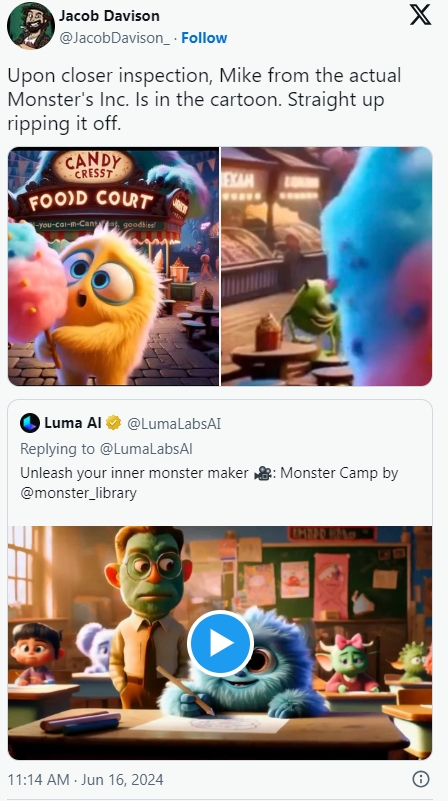Last week, AI startup Luma released a series of videos created using its new video generation tool, Dream Machine. The tool is described as a "highly scalable and efficient transformer model trained directly on video."
However, in the trailer for Monster Camp featured in the videos, some characters have been accused of blatantly copying Mike Wazowski from Disney Pixar's Monsters, Inc. This has sparked questions about the transparency and data sources of such models, including whether they were created in the style of Pixar and whether their training data includes works from Disney Studios. The lack of transparency is one of the biggest concerns people have about these models.

In recent months, similar text-to-video AI tools like Dream Machine, including OpenAI's Sora, Google's VideoPoet, and Veo, have been unveiled.
Luma touts its Dream Machine model as the future of filmmaking, capable of producing "high-quality, realistic footage" simply by inputting prompts into a box. By watching videos, such as cars racing on a dissolving highway or a stiffly narrated sci-fi short, you can see why the technology's enthusiastic supporters quickly regard it as innovative.
Currently, Luma encourages people to register and use Dream Machine for free, but the company also offers a "Pro" version and other paid tiers that provide additional features for a fee. Disney has not publicly commented on what Luma appears to be doing, and it's possible the company has not yet noticed the situation.










